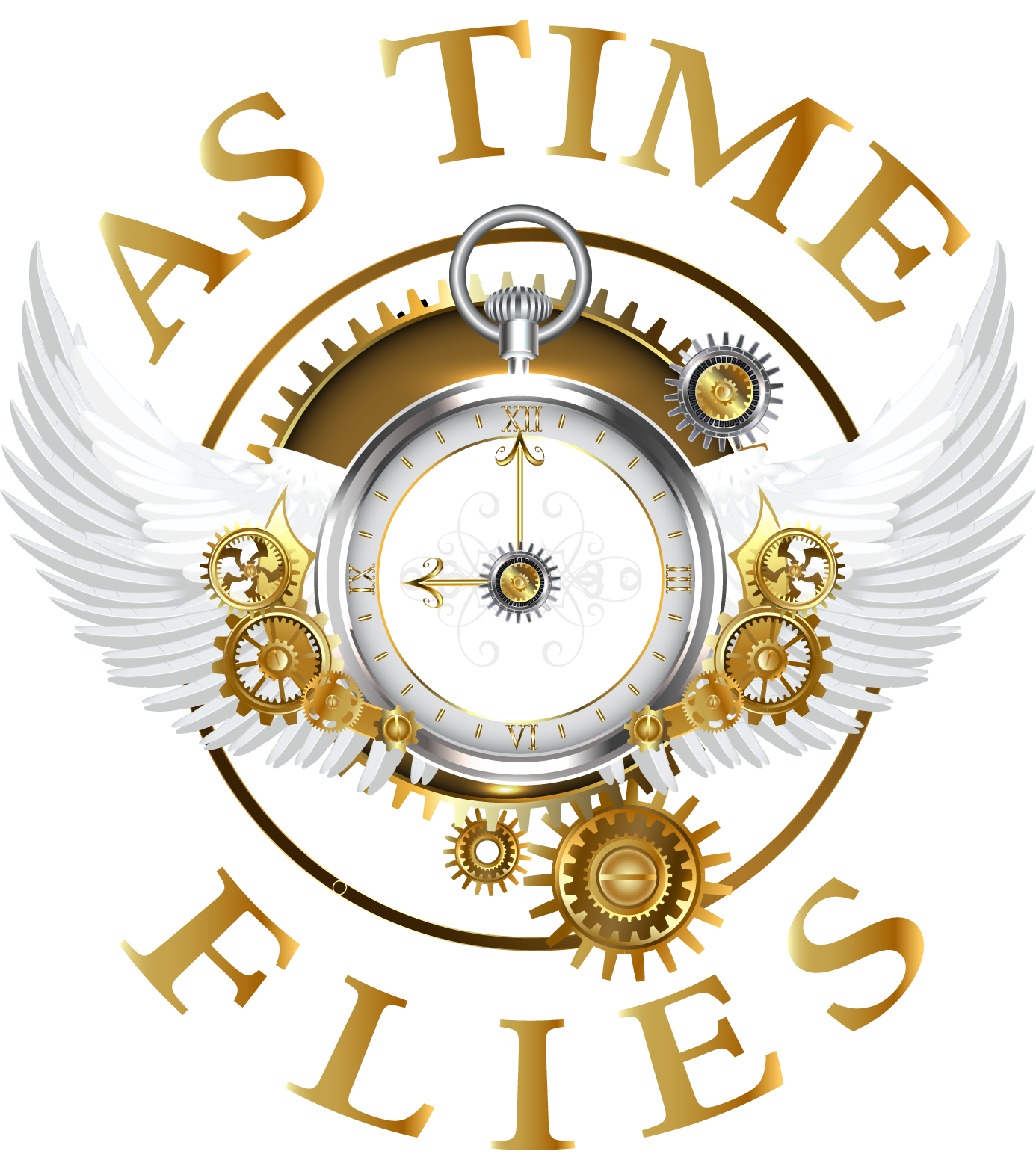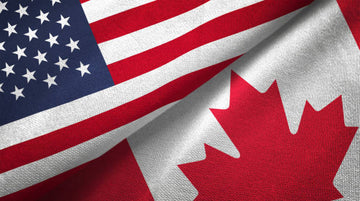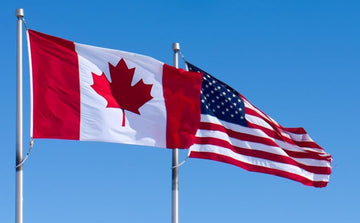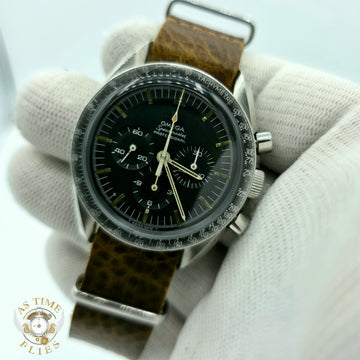Do You Pay Tariffs or Duties on Used Watches? A Breakdown for Buyers in Canada and the U.S.
Good news first: In most cases, you don't have to pay tariffs or import duties on used watches when you're buying for personal use. That's true whether you're in Canada or the United States. And yes, it applies even when the watch is made in Switzerland or Japan.
But of course, it’s not always that simple. Rules can vary depending on how the watch is shipped, what it’s made of, and who’s importing it. So let’s break it all down.
1. What's a Tariff, Anyway?
A tariff is a tax placed on goods that are imported from other countries. Governments use them to protect local industries or generate revenue.
2. Customs and Duties—Are They the Same as Tariffs?
Not exactly. "Customs duties" are specific kinds of tariffs that are collected by border agencies. You might also hear about "import taxes." They're all charges applied when something crosses a border.
3. So Do You Pay These on a Used Watch?
Most of the time, no—not if you're importing a used watch for personal use. Both Canada and the U.S. tend to focus tariffs and duties on new goods or bulk commercial imports.
4. Why Aren’t Used Watches Usually Taxed?
Used goods generally aren’t subject to the same tariffs as new ones. The logic is that they’ve already been taxed once when first sold. That’s why buying a vintage Rolex from Europe or a Seiko from Japan rarely triggers duties at the border.
5. Buying from the U.S. to Canada
Let’s say you’re in Canada and buying a used watch from a U.S. seller. You likely won’t pay duties, especially if the watch is made in Switzerland or Japan and clearly marked as used. However, you may still pay GST/HST when it arrives.
6. Buying from Canada to the U.S.
Americans buying a used watch from Canada are typically in the clear. The U.S. doesn’t charge duties on most wristwatches under $800 in value when they’re for personal use.
7. What About Watches Over $800 in the U.S.?
If the value is higher, you might need to declare it, but there’s usually still no duty on used watches. You may, however, pay state use tax in some cases.
8. Does the Country of Origin Matter?
Yes, but mostly for new goods. Swiss-made and Japanese-made watches often have favorable trade status with both Canada and the U.S., which reduces or eliminates tariffs.
9. What’s the Role of NAFTA/USMCA?
The North American trade agreements help reduce duties on many goods exchanged between the U.S., Canada, and Mexico. While they don’t always apply to Swiss or Japanese watches, they show how open trade policies can lower costs.
10. Courier vs. Postal Delivery
Shipping method can affect what you pay. Couriers like FedEx and UPS sometimes charge extra brokerage fees, while national mail (Canada Post, USPS) may be cheaper and less likely to surprise you.
11. What Are Brokerage Fees?
These are service charges that shipping companies apply when they handle customs paperwork. It’s not a government tax, but it can feel like one!
12. How Do You Prove It’s Used?
Include words like “pre-owned” or “used” in the customs declaration. Receipts or seller notes that show the watch is secondhand help reduce misunderstandings.
13. What if It's a Gift?
Gifts under certain thresholds (e.g., $60 CAD in Canada) may be exempt from taxes, but only if the sender marks it clearly. Over that, you’re likely paying sales tax.
14. Are Vintage Watches Treated Differently?
No formal difference exists between “vintage” and “used” in customs language. But a 50-year-old Omega clearly isn’t new, and most customs officers understand that.
15. Does Material Matter?
Yes. Watches with precious metals or exotic straps (like alligator leather) may face different rules—even if used.
16. What’s the Worst-Case Scenario?
You could be asked to pay tax or duties based on a declared value. But again, this is rare for used items meant for personal use.
17. Declared Value vs. Purchase Price
Always declare the real purchase price. Undervaluing can get your package seized or delay delivery.
18. Should You Insure the Shipment?
Yes. It protects against loss or damage, and helps validate the item’s value during transit.
19. What if You’re Returning the Watch?
You may be able to reclaim taxes if the item is returned, but paperwork is usually required. It’s easier if everything is well documented.
20. Do Sellers Handle This or Buyers?
Typically, buyers are responsible for customs fees, but many sellers—especially on watch platforms—provide detailed customs forms to help you avoid issues.
21. What About eBay Global Shipping Program?
eBay often charges import fees upfront. This can simplify the process, but sometimes costs more than handling customs yourself.
22. Buying from Japan
Used Japanese watches rarely face duties when imported to North America. But you may pay sales tax (e.g., GST in Canada) upon arrival.
23. Swiss Imports to Canada or U.S.
Swiss watches are usually duty-free when used and properly declared. Still, taxes like GST or state use tax can apply.
24. Can You Appeal a Customs Fee?
Yes, if you believe you were charged incorrectly. Keep all paperwork and contact the border agency to file a review.
25. Are Watch Parts Treated Differently?
Sometimes. Movements and parts might face different rules, especially if labeled as repair items.
26. What If You’re Traveling with a Watch?
Personal items you travel with (like a watch you’re wearing) usually aren’t taxed when you return—just don’t bring ten of them!
27. Is Customs Getting Stricter?
Not necessarily, but more automated systems mean they catch mistakes more often. Be honest and clear, and you’re unlikely to face issues.
28. How Does Watch Condition Affect Duties?
It doesn’t officially, but clear signs of wear (scratches, patina) reinforce the fact that it’s a used item.
29. Buying from a Dealer vs. Private Seller
Dealers might include invoices and official packaging, which could look more “new” to customs. Always ask them to mark the item as pre-owned.
30. Final Word: You’re Probably in the Clear
If you’re buying a used watch from abroad, you’re unlikely to face tariffs or duties—just basic taxes in some cases. Knowing the rules and shipping smart makes the process smooth, affordable, and stress-free.
Enjoy your new (old) watch. Let it cross borders, not budgets.





